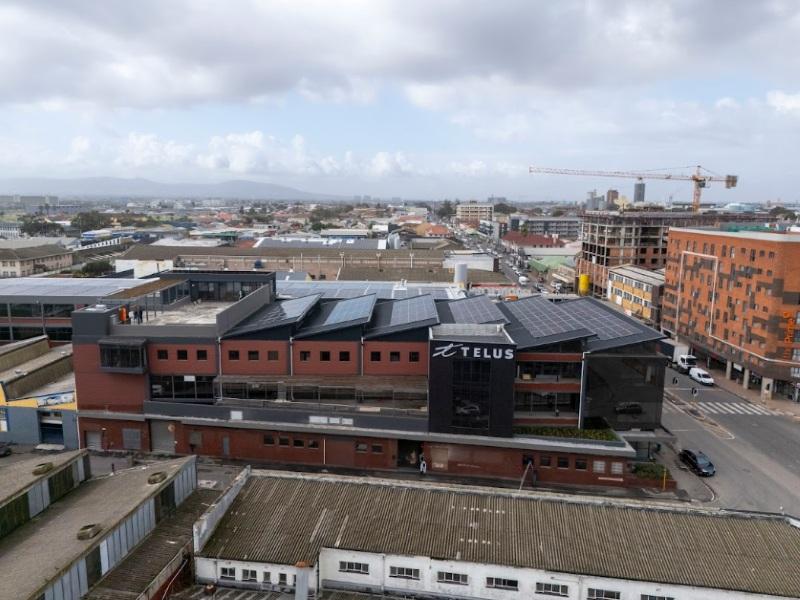 Tidewater Renewables Ltd. (LCFS-T) has reported a net loss of $367.1 million in Q3, compared to a net loss of $9.4 million in the same quarter of 2023, primarily driven by losses incurred on the sale of EBITDA-generating assets and realized losses on derivative contracts.
Tidewater Renewables Ltd. (LCFS-T) has reported a net loss of $367.1 million in Q3, compared to a net loss of $9.4 million in the same quarter of 2023, primarily driven by losses incurred on the sale of EBITDA-generating assets and realized losses on derivative contracts.
In addition, the Calgary-based company cited the contributing factor of higher financing costs, which were partially offset by higher operating income and deferred tax recoveries.
According to the Q3 earnings report released on Nov. 14, the company also saw its Q3 adjusted EBITDA decline to $13.6 million, a decrease of 54 per cent from the $29.6 million recorded in the previous quarter.
These disappointing results come amid a severe decline in emission credit prices for the renewable diesel Tidewater Renewables produces from its flagship Hydrogenation Derived Renewable Diesel (HDRD) facility in Prince George, B.C.
The $342-million plant opened to great fanfare in November 2023 when it became the first renewable diesel facility to begin operations in Canada. Relying mainly on canola oil and similar feedstocks to produce biomass-based diesel as an alternative to fossil fuel diesel, renewable diesel lowers carbon emissions by as much as 80 per cent compared to regular diesel.
The HDRD facility continued to operate at near full capacity during Q3.
Deteriorating market conditions lead to sale of key assets
Dedicated to developing and producing renewable fuels, Tidewater Renewables came into being in July 2021 as the result of an IPO launched by its parent company, Tidewater Midstream, which remains its majority shareholder.
While facing a cash crunch resulting from falling B.C. emission credit prices due to a sudden influx of heavily subsidized U.S. renewable diesel imports, Tidewater Renewables restructured its operations during Q3.
During the Thursday, Nov. 14 conference call, Tidewater Renewables chairman and CEO Jeremy Baines outlined how the company is taking key steps to improve its financial posture
"On Sept. 12, we completed the previously announced transaction with Tidewater Midstream. This transaction involved the sale of several key assets, including our canola . . . processing and fluid catalytic cracking infrastructure, various refinery interests and a natural gas storage facility, as well as the associated decommissioning liabilities associated with these assets," Baines said.
"Cash proceeds of $122 million were used to reduce outstanding debt on the senior credit facility. As part of this transaction, the contracted take-or-pay and operating agreements were terminated effective Aug. 1, 2024 and Tidewater Midstream assigned Tidewater Renewables the right to receive certain B.C. LCFS (low-carbon fuel standard) credits valued at $7.7 million."
Focus on core assets
Tidewater Renewables also announced the sale of its used cooking oil feedstock business for $10.6 million as part of the ongoing streamlining of its operations.
"This was a great outcome for the business as these non-core assets didn't contribute meaningful adjusted EBITDA or free cash flow for Tidewater Renewables and the sale will allow management to focus our attention on the company's core assets," Baines said.
"The sale also has no impact on the day-to-day operations at the HTRD complex. We will continue to optimize the feedstock mix, including canola oil, used cooking oil, tallow and other low-carbon feedstocks to reduce operating costs and maximize emission credits generative."
Tidewater plans formal trade remedy complaint
One key revelation in the Q3 earnings report is that Tidewater Renewables is "actively engaged" in discussions with the federal and B.C. provincial governments regarding the urgent need to change existing low-carbon fuel policies.
"Subsidized United States renewable diesel producers (are being allowed) to take advantage of overlapping U.S. and Canadian policies" that have adversely impacted the company's ability to compete in the market.
"(Tidewater Renewables) has engaged external trade law counsel for the purposes of advising on and preparing a trade remedy complaint against renewable diesel imports from the U.S. that management believes are unfairly priced . . . Based on available information and advice, management believes that a trade case against renewable diesel imports from the U.S. has a reasonably high likelihood of success."
The company is poised to file the trade complaint before the end of the year and could be entitled to duty relief provided the federal government rules in its favour.
A level playing field for renewable diesel
Baines believes Tidewater Renewables and other Canadian producers are entitled to "compete on a level playing field with the U.S. renewable diesel producers . . . currently benefiting from overlapping U.S. and Canadian policies."
During the Q&A portion of the conference call, Baines described the kinds of remedies for perceived unfair U.S. exports of renewable diesel into Canada.
"U.S. producers (are) today double dipping, getting a production subsidy in the States and then also getting the emissions credits from sales in Canada effectively," he said. "The best outcome on the trade complaint . . . would be countervailing duties on subsidized product coming into the market (that could be implemented) by late Q2. Or that any product subsidized in another jurisdiction (would be) ineligible for the LCFS credits . . . Any of those types of outcomes would be supportive."
Baines also stated that "we firmly believe that the B.C. and federal governments understand the importance of a strong domestic renewable fuel industry, including the high-paying jobs and technological advancements that businesses like ours bring to the economy.
"We are optimistic that there are policy changes that the government can implement that will support a more competitive environment for Canadian producers, and we continue to work towards that end."










